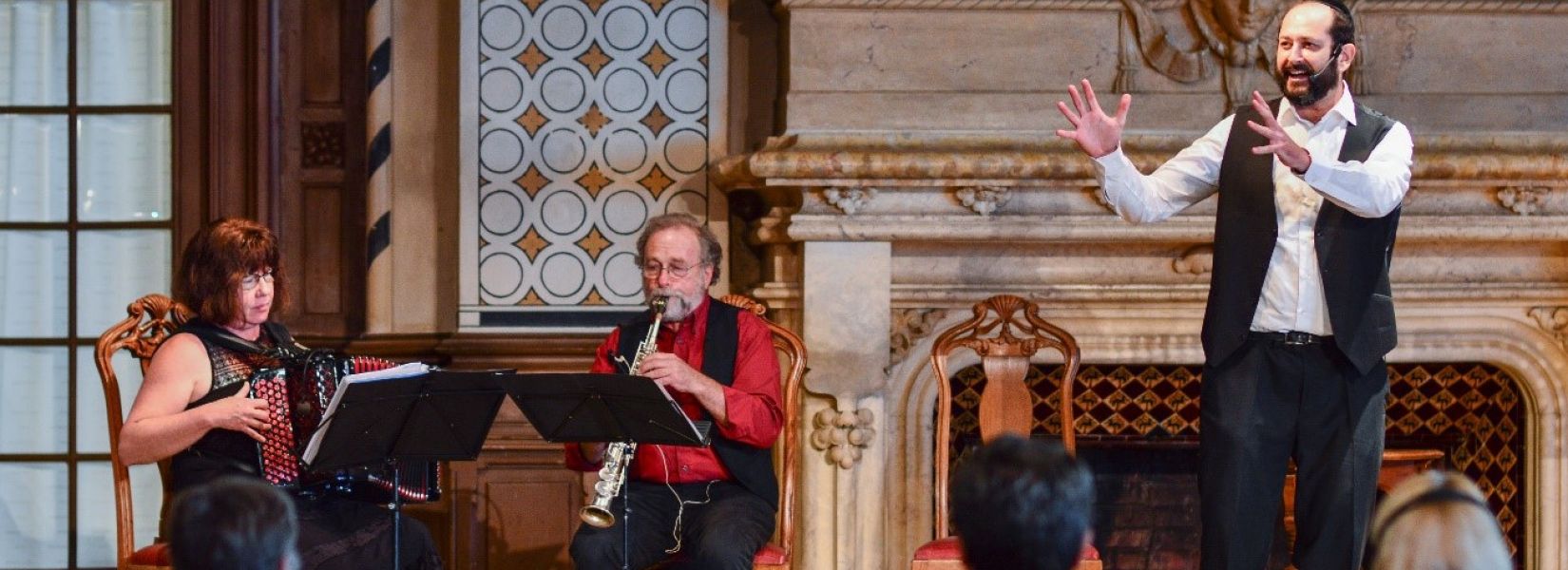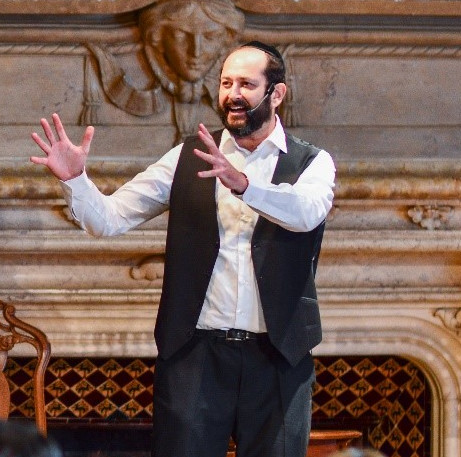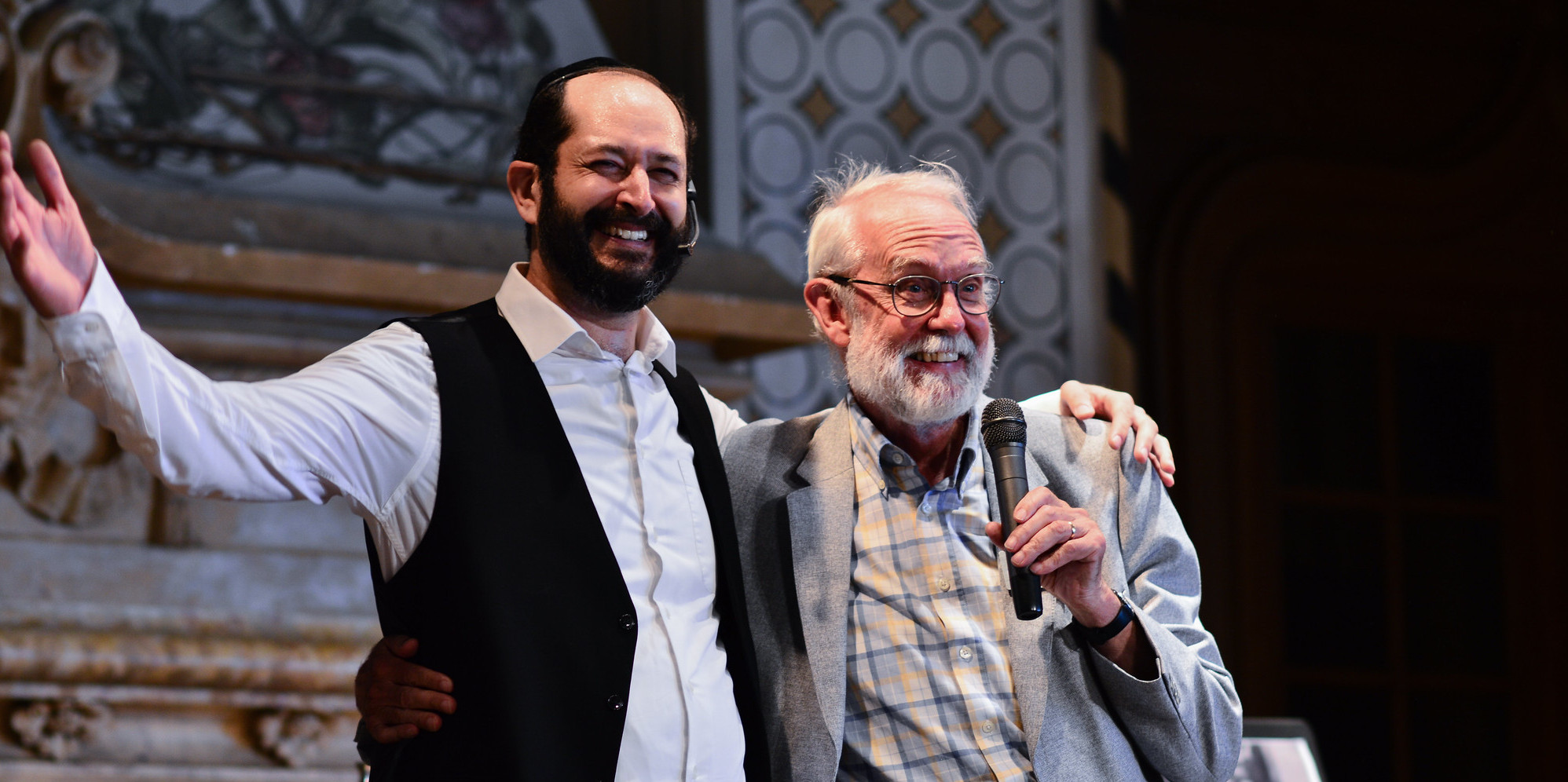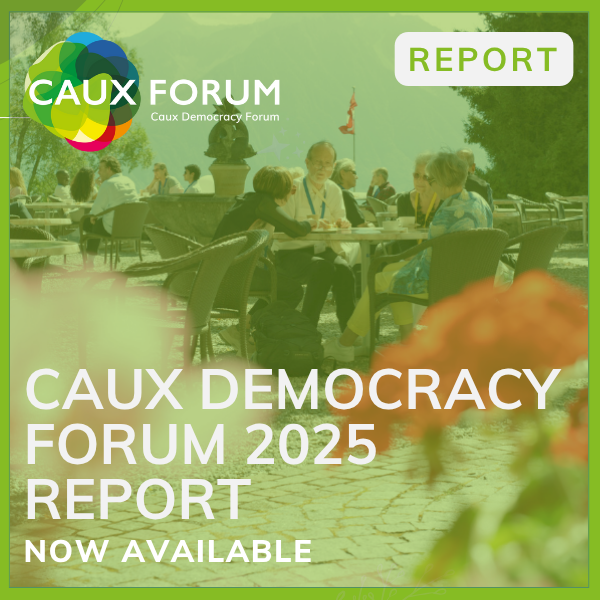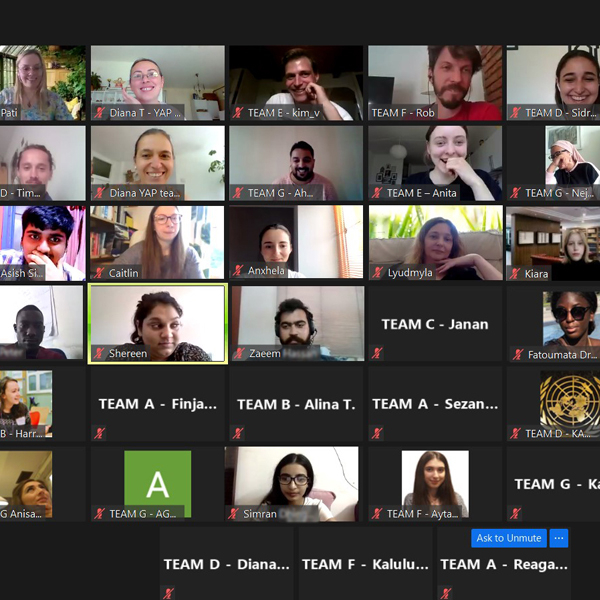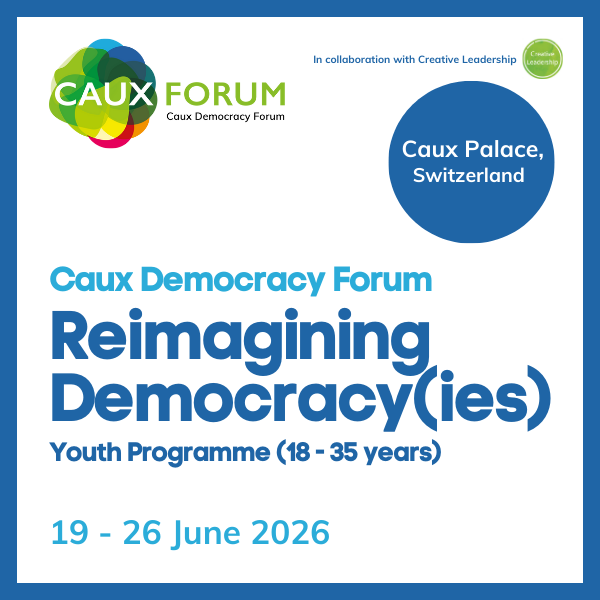How storytelling can foster healing and reconciliation
Tools for Changemakers 2019
30/07/2019
Marc Isserles’s poignant one-man show, We Must Save the Children, comes to life when you discover that his grandparents sought shelter at the Caux Palace in 1945 as Jewish refugees. The play took place as part of the Tools for Changemakers conference. Its message is that you have to reconcile your past if you want to change the future.
Marc Isserles is not the only one person at the Caux Forum this year whose relatives lived at the Caux Palace during World War II when it acted as a house of refuge for persecuted minorities. Shoshana Faire also walks the halls where her grandparents once sought refuge.
Marc, a Genevan lawyer and musician, and Shoshana, an Australian peacebuilder and activist, lead very different lives. But their shared history left Shoshana moved and ‘inarticulate’ after seeing Marc’s play. Its stirring story of persecution was also her grandparents’ experience, she says.
People from the Middle East, Germany and further afield approached Marc after the play to tell him how moved they were by his performance. This, he says, reiterates the fact that the labels and categories we subject ourselves to should not rob us of our capacity to be human. The only way we can work towards peace and reconciliation is through meeting people at the human level, regardless of interests, faith or ethnicity. This applies not just to the so-called refugee crisis, but also within conflict-ridden societies from Syria to Tibet. Breaking down the barriers which dismantle our ability to connect with others is the first step in dissolving hate-crime, violence and discrimination.
Marc cites the 2002 romantic comedy My Big Fat Greek Wedding as an example of the need to recognize past prejudice, labels and stereotypes in the interest of creating peace. We must understand and reconcile with those who have been labelled as ‘others’. One of the best ways of doing this, Marc and Shoshana tell me, is through storytelling.
Shoshana tells her story through training peacebuilders. Marc tells his through musical theatre. They both admire the storytelling ethos fostered at the Caux Forum and say that is essential to help emerging generations to understand their past, so that they can incite the right type of change. Learning historical facts at school and being immersed in the reality of another person’s story are two very different methods of learning, with different outcomes. Stories can equip changemakers with the compassion they need to work for positive change.
The trauma attached to Shoshana’s family history meant that their stories were not often talked about. She tells me how important it is that trauma-healing and storytelling are fostered from a young age.
Looking forward, Marc and Shoshana agree that intergenerational dialogue is essential to forming the next generation of ‘ambassadors of tolerance’. Storytelling enables empathy and openness toward others, and so the three processes of telling personal stories, breaking down stereotypes and passing on the torch are inextricably connected. The Caux Forum fosters these processes, and that is why Marc and Shoshana come back.
Text: Emma Beuster
Photos: Leela Channer
